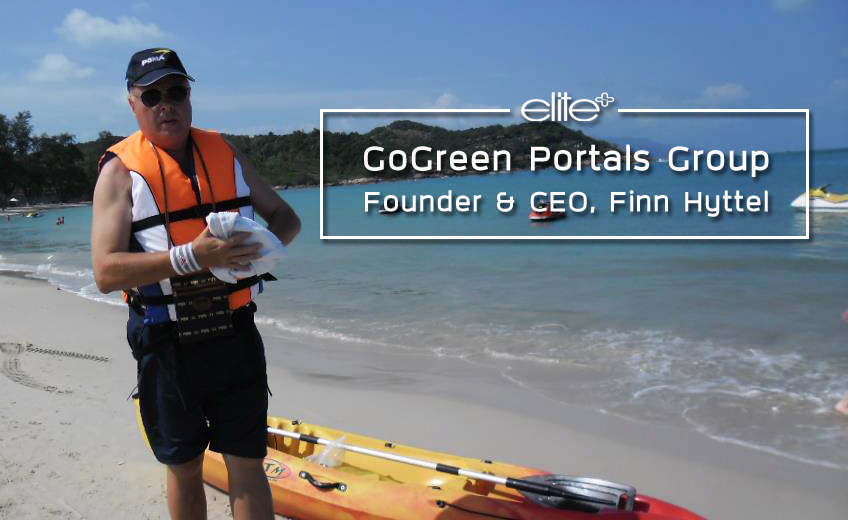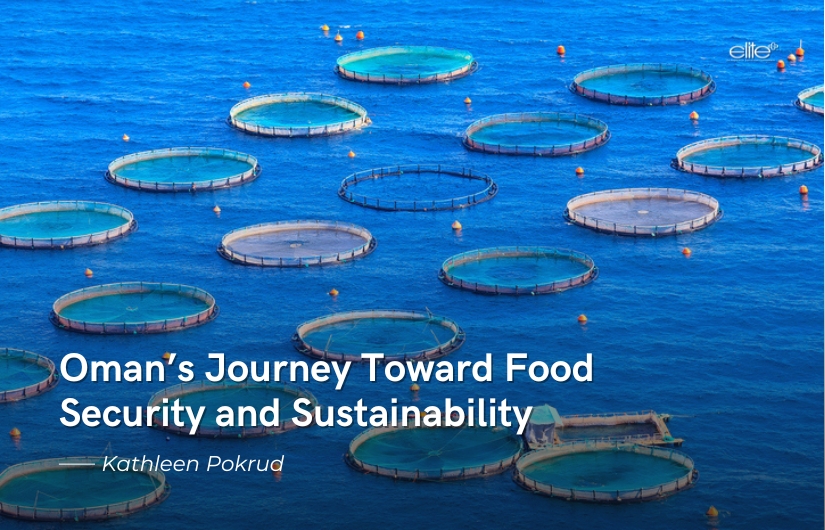“Individuals, businesses and organizations need to change their ideas about how environmental good is only achieved at the expense of commercial interests. It is simply not true and is an outmoded and dangerous philosophy. Impact funding is about embracing people, profits and the planet, creating social, economic and environmental change for the better. Without sustainable tourism, Thailand will lose its most precious assets, livelihoods will suffer and business potential in some parts of the country will wane.”
- GoGreen Portals Group Founder & CEO, Finn Hyttel
Finn Hyttel grew up with a love of the sea and sailboats in his native Denmark. What followed though was 30 plus years of running tech and property businesses with international business development experience working with governments and multinational corporations, basing himself on Thailand’s second largest island, Koh Samui for many years, where he still resides.
It was these corporate insights and global networks combined with an overwhelming desire to focus his energy on the world’s environmental woes that led to him setting up the GoGreen Portals Group in 2012. As well as GoGreen Portals, a digital platform to promote environmental projects, the Group recently launched the GoGreen Credits Impact Fund (GCIF); a value-based investment channel and platform targeting commercially driven companies that create a positive impact on the world. Part of the profits of the Fund and its portfolio companies are ploughed into purely non-profit marine conservation too, through the GoGreen Credits Marine Life & Coral Reef Conservation Foundation (GCM).
Finn is Board Director of the GCIF’s first funded company, AquaBlue Group Inc., with plans underway to set up a land-based sea cucumber super hatchery and aquaculture sites in Thailand.
How can sea cucumber fish farming help the environment?
What we are seeing right now is sea cucumbers being over-fished, leading to some species being at risk. The problem with this is that demand, particularly in China, is high and yet the sea cucumber is a keystone species. What this means is that they filter the sediment and keep the waters clean; play an integral part in maintaining the delicate balance of marine ecosystems.
Is aquaculture a viable solution?
Absolutely. It can take the pressure off fisheries and, just in terms of the wider picture, the amount of seafood in the world’s seas and oceans is not sustainable. Before we know it all the big-fish species will have died-off and because of the pollution we create we will soon be dining on expensive fish and plastic.
Sustainable tourism sounds like an ideal. Does it appeal to businesses in the travel, tourism and hospitality industries?
Actually, there are many hotels and resorts who are following sustainability principles already, such as one of the first eco-resorts in Thailand, Tongsai Bay here in Koh Samui. Sustainability can cut costs for businesses and makes commercial sense. Now businesses need to extend this internal understanding of sustainability to the environments in which they operate.
However, there are also many who look only at the short-term rather than returns in the longer term. It is this myopic view that we want to challenge. It is within the interests of businesses, both in Thailand and abroad, to invest in for-profit projects that ultimately are going to create green benefits for the destinations that keep their businesses afloat.
Is there an industry awareness that Thailand’s natural assets are at risk?
There should be. Around 1 in 11 jobs globally are connected with tourism and in Thailand this massive industry relies on preserving the value of the country’s natural assets. The fact that the Department of National Parks, Wildlife and Plants Conservation in Thailand has actually shut down dive sites in the South is a stark warning of a desperate reality. Reefs are dying. Tourism needs to be sustainable and who better to invest in that than the very companies who are making money from the 30 million plus tourists who visit Thailand every year.
Part of the GCIF strategy is to invest in impactful businesses and also use some of the profits to fund non-profit conservation. Is this a way of integrating profit-driven ventures and non-profit-driven environmental projects? Yes, exactly. So, if we take sea cucumber aquaculture, the very nature of the business is beneficial. On top of this, initiatives that are not focused on the bottom line can benefit, such as rear-and-release programs.
I think we need to take a holistic approach to environmentalism and our business plan is also all-encompassing. We are encouraging start-ups through our GoGreen Incubation Center (GIC). We can then select some of these innovative businesses to benefit from impact funding; creating a circular solution.
How important is environmental business innovation?
Vital. Southeast Asia is renowned for being inventive and innovative. The fact is though, new ideas need hard cash to take flight. I like to think that we are in the business of making environmental dreams come true. Yes, that’s a good way to put it!
For more information please visit https://www.gogreen-portals.com/
































































































































































































































































































































































































































































































































































































































































































































































































































































































































